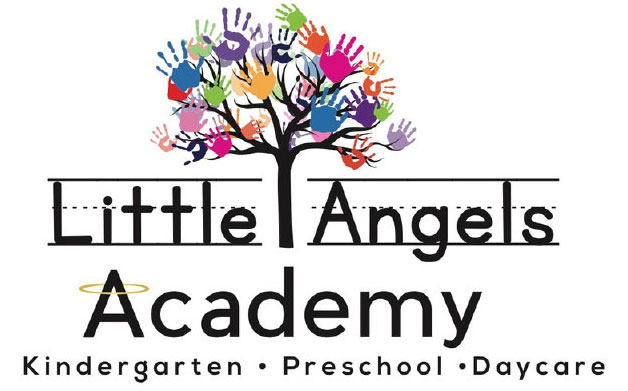Kindergarten Program
Monday-Thursday 8:30am-2pm Friday 8:30 am-11:30am *Extended Day Hours Available
The Kindergarten curriculum at Little Angels is an extension of the same goals and philosophy as our pre-school curriculum. Our well-balanced educational experience ignites curiosity, perseverance, creativity, and moral character. Kindness, independence, and self-regulation are of major character focus in this classroom. Our program provides challenges necessary to create a strong foundation for confident life long learning. We believe young learners need a certain balance of freedom and structure. Asking meaningful questions instead of always providing answers is a method that our Kindergarten program is built on. We value the independent learner and understand that education is a natural process that comes easy to children who are allowed to freely interact with their environments.
Experiential learning adventures, and encouraging a growth mindset help prepare your child for real life successes and failures.
We believe that learning to learn, learning to do, and learning to be are far more important than simply learning to know.
Language Arts / Literacy Program
Teachers offer a variety of enriching language experiences so that children develop enthusiasm and love for literature and personal communication skills through reading and writing. Our language arts program guides children to listen to, identify, and manipulate language sounds to develop phonemic awareness. Writing tables offer daily opportunities for drawing and writing with a variety of tools. Emergent writing skills, creative expression, and imagination are fostered in the use of daily journaling. Musical experiences are an extension of our literacy series and are incorporated into the daily life of the classroom. Children develop communication skills, including speaking, listening, reading, and writing, continually as they share experiences throughout their time together. Our literacy series integrateScience, Social Studies, History, Technology, Culture, and Responsibility, into weekly units that allow children engaging possibilities for learning.
The following areas of concentration have been outlined in this brief summary
Oral Language
Calendar Activities
Daily Message Board
Amazing Words
Let’s Talk – Visual Charts
Let’s Sing – Song Charts
Shared Reading – Unit Stories
Oral reading for enjoyment
Comprehension skills through questions and conversation
Recall to understand concepts and their application
Make predictions from a text by using pictures, words, or personal knowledge
Identify the covers and title page of a book
Make connections: text to self, text to text, text to word
Participate in performances of stories, plays, and poems
Word Work
Letter Recognition
Understand that print moves from left to right in English
Understand that words are made of syllables
Development of sight word vocabulary
Understand the relationship between letters and sounds
Consonants / Consonant Blends
Short Vowels
Use knowledge of the relationship between sounds and letters to decode simple words
Language Arts
Journal Work – incorporate print in drawings with labels and simple stories
Writing Words – learning sentence structure
Arrange events in a sequence when telling or writing a story
Application to Science and Social Studies
Write upper and lower case letters
Mathematics
Children explore mathematical concepts with a hands-on approach. As children investigate, they are free to express their thoughts, communicate their ideas, problem solve, and come to conclusions with confidence. Concepts of number, estimation, measurement, patterns and relationships, geometry and algebra, are explored. A mathematical focus is also supported through the arts, as children create patterns of color, glue and organize materials or create two or three dimensional shapes.
Number Sense and Operations
Number identification and counting to 20
Recognizing number words zero to twelve
Numerical Order – Sequencing Numbers
One-to-one correspondence
Identify positions of objects in sequence
Identify U.S. coins by name
Introduction to beginning addition and
subtraction
Comparing Sets and Graphing
Unit on time
Count by Twos, Fives, Tens
Patterns, Relations, Geometry, Fractions, and Algebra
Name, describe, sort, an d draw simple two-dimensional shapes
Describe attributes of two-dimensional shapes
Identify positions of objects in space using appropriate language
Compare, Identify, and sort attributes
Classify objects by size, shape, color, number and other proprieties
Identify, reproduce, describe, extend and create repeating patterns
Use estimates of measurements
Use standard and non-standard systems to measure length, areas, weight and capacity
Social Science / Physical Development
Children work on projects and participate in play as individuals, in small groups, and in larger groups, so that each child has supported experience in a variety of social settings. An important goal of the Kindergarten curriculum is for children to be able to participate in finding their own solutions to the social challenge of sharing space, materials, and attention with peers. Children are encouraged to initiate play, make choices, demonstrate competence, and take on responsibilities to develop the social skills necessary to flourish in a school environment. Kindergartners are encouraged to participate in active play and activities that support gross motor development. There are daily opportunities for running, jumping, balancing, and climbing.

